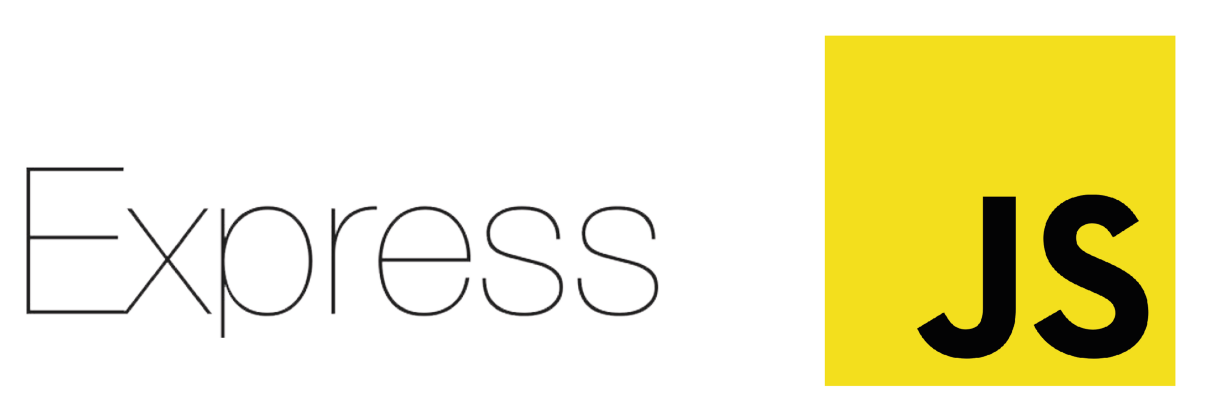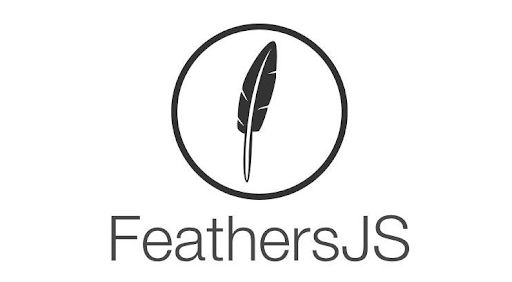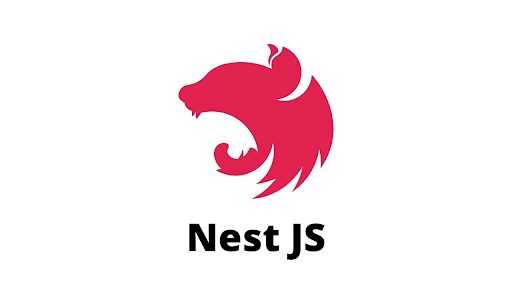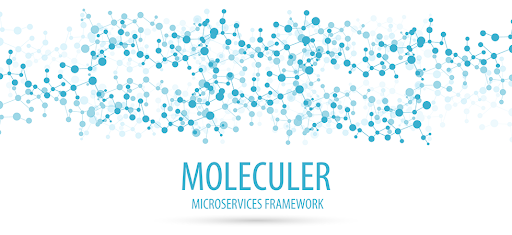Top 5 Node.js REST API Frameworks
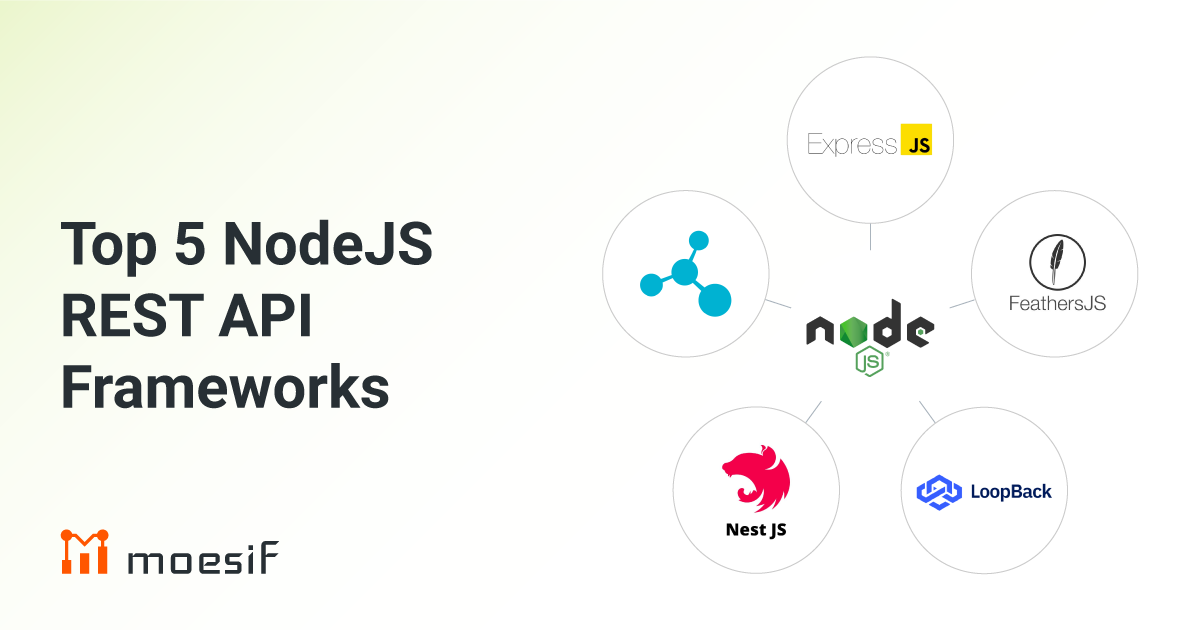
Node.js has seen meteoric growth in recent years, making it one of the most popular programming languages on the web. By combining Javascript on the front end with Node.js for backend development, JS developers can create powerful and scalable apps that offer benefits not found elsewhere.

How To Pick an API Framework
If you’re a Node.js developer looking to create a REST API with Node.js, there are many different Javascript frameworks you can choose from. With so many options available, it can be difficult to know which one is right for your app development. In this article, we’ll go over some of the top 5 Node.js REST API frameworks and help you decide which one is best for your application programming interface (API) development.
When choosing a Node.js REST API framework, there are a few things to keep in mind. First, consider what kind of functionality you need from your API development. Do you need a simple CRUD API or something more complex? Second, think about how much control you want over the structure of your API. Some Node.js frameworks provide more flexibility than others. Finally, take into account the size and scope of your application. Some frameworks are better suited for large web apps while others work better for small ones.
- Ease of use: How easy is the framework to use? Is it well-documented?
- Performance: How fast is the framework? Does it scale well?
- Features: What features does the framework offer? Does it support everything you need?
- Community: Is there a large and active web developer community around the framework?
With all that in mind, let’s take a look at some of the top Node.js REST API frameworks:
Express
The Express framework is a popular Node.js framework for building web app and mobile applications. It’s most commonly used as a router to create a single page application, multi-page, and hybrid applications. Express.js is built on top of Node.js and provides an all-in-one package for managing servers, routes, and more.
Pros:
- Links to databases like MySQL, MongoDB, etc
- Use Middleware for request handling
- Asynchronous
- Express provides dynamic rendering of HTML Pages, allocated by passing the arguments to the template
- Open source framework
Cons:
- Issues with Callbacks
- Errors are challenging to understand
- Inability to process CPUs with the capacity for tasks that require large amounts of processing power
To learn more about Express framework, you can check out the docs Here
FeatherJS
FeathersJS is a JavaScript framework used for highly-responsiveness real-time apps. It simplifies JavaScript development while still being advanced. FeathersJS enables JS developers to control data through RESTful resources, meaning they don’t need external data stores or databases. Node.js Developers can also create REST APIs with Feather commands, so it’s easier to enable your web app to communicate with third-party applications and services like Twilio or Stripe. You can also integrate FeathersJS into various JavaScript frameworks.
Pros:
- Real-time API support
- Good Documentation for the development process
- Supports both Javascript and Typescript programming language
- CLI scaffolding tool
- Supports both Relational and Non-Relational Databases
Cons:
- It uses PassportJS that which does not provide SAML authentication out of the box
- Larger-scale real time application in FeathersJS could cause a WebSockets issue
To learn more about Feather.Js framework, you can check out the docs Here
LoopBack
LoopBack is a Node.js framework that can be used by JS developers and businesses to build on top of the service with TypeScript packages. It offers multiple advantages for application development, including the following:
- Health Checks for monitoring
- Metrics for collecting data about system performance
- Distributed Tracing for tracing issues across microservices
- Logging so you can gather insights about what’s going on within your applications
- Built-in Docker files so you can quickly build new projects without having to worry about any of the infrastructure
All this combined makes LoopBack one of the few Node.js frameworks that support proprietary databases like Oracle, Microsoft SQL, IBM DB2, etc. It also provides an easy bridge between SOAP services, making it one of only a handful of Node.js frameworks providing integration with SOAP services.
Pros:
- Code is modular and structured
- Good ORM with available connectors
- Built-in user & access role feature
- Built in API Explorer via Swagger
Cons:
- Monolithic architecture
- Opinionated architecture
- Not as much community support
- Steep learning curve
To learn more about LoopBack framework, you can check out the docs Here
Nest.Js
Nest is a framework for building modern Node.js applications with a high-performance architecture that takes advantage of the latest JavaScript features by using progressive JavaScript (TypeScript), functional programming principles, and reactive programming. It combines the best of object oriented programming and functional reactive programming approaches so you can choose your preference without being forced to conform to one particular ideology.
Pros:
- NestJS includes a built-in Direct Injection container, which makes it easier to keep your code modular and readable
- Can create software solutions where the components can be taken out and changed. This means there is no strong coupling between them
- The use of modular structures simplifies the division of a project into separate blocks. It helps to use external libraries in a project
- Easy to write simple API endpoints
Cons:
- Developers know less about what’s going on under the hood, which means debugging is trickier and takes longer
- NestJS may be lacking in features compared to frameworks in other languages, such as Spring in Java or .NET in C#
- Complicated development process
To learn more about Nest.Js framework, you can check out the docs Here
Moleculer
Moleculer is a nodejs framework that helps you to build out microservices quickly and efficiently. It also gives you tools for fast recovery in the event of failure, so your services can continue running efficiently and reliably. Healthy monitoring ensures everything is up to date and any problems are quickly detected and fixed.
Pros:
- Fast performance
- Open source framework
- Durability
- Fault-tolerant framework with CB and load-balancer features
Cons:
- Lack of Documentation
- Lack of Community Support
- Limitations of an enterprise-grade API are that there are limited options for setting up APIs and other restrictions
- Not as feature-rich as other frameworks
To learn more about Moleculer framework, you can check out the docs Here
Adding in API Analytics and Monetization
Building an API is only the start. Once your API endpoint is built, you’ll want to make sure that you are monitoring and analyzing incoming traffic. By doing this, you can identify potential issues and security flaws, and determine how your API is being used. These can all be crucial aspects in growing and supporting your APIs. As your API platform grows, you may be focused on API products. This is making the shift from simply building APIs into the domain of using the API as a business tool. Much like a more formal product, an API product needs to be managed and likely will be monetized. Building revenue from your APIs can be a great way to expand your business’s bottom line. With Moesif, you can achieve all of the above. Moesif can easily integrate through either an SDK or plugin and be up and running in minutes. Once Moesif is integrated with your APIs, you’ll be able to explore charting and reporting to look at:
- Live API traffic
- Time-series reports inspecting usage
- Conversion funnels
- Retention reports
- And much more…
Moesif also enables API monetization by allowing you to track usage and sync it to a billing provider like Stripe, Recurly, or Chargebee. Within minutes, integrate your APIs and begin billing customers for usage. Moesif allows you to fine-tune exactly what you want to bill upon and is highly customizable to suit your exact needs.
Wrapping Up
In this article, we covered 5 of the best Node.js frameworks for developing RESTful APIs with Javascript programming language. We looked at a high-level overview of each and listed out some points for consideration. We also discussed some key factors in how to decide on which API framework to use. Lastly, we looked at how Moesif can help you take your API development to the next level by implementing analytics and monetization.
Looking to get started with Moesif? Simply log into Moesif and try these great features out. Don’t have an account yet? Sign up for a free trial and start exploring your user analytics and beyond in a few clicks.


